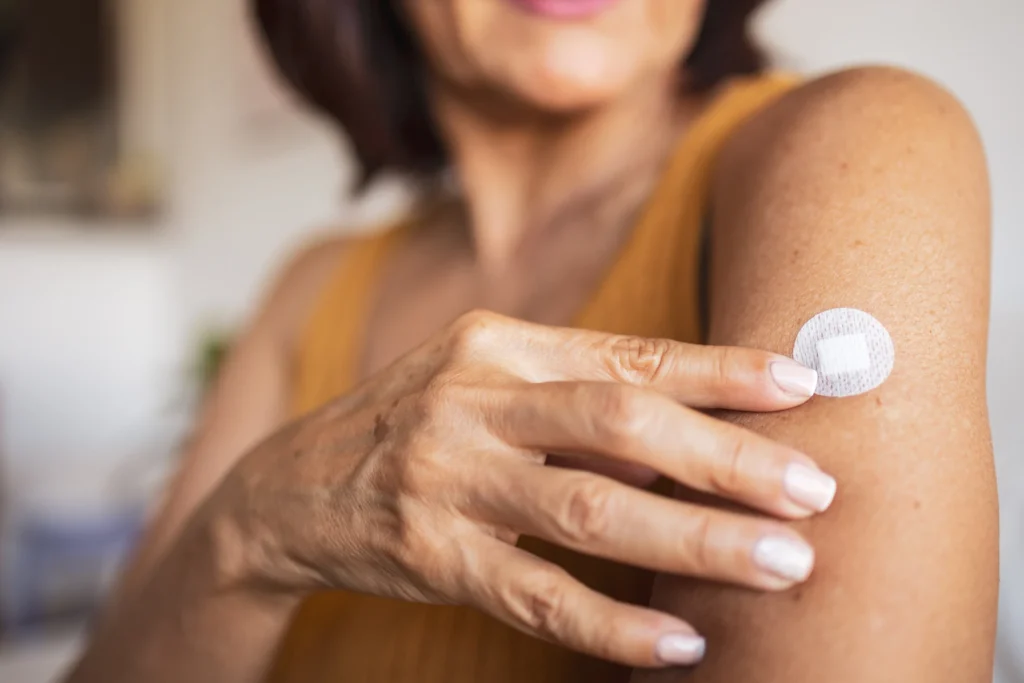A Practical Guide to Protecting Your Health While Receiving Menopause Treatment Abroad
Hormone therapy (HT) is a powerful tool for managing menopause symptoms, from hot flashes and insomnia to mood swings and vaginal dryness. But for patients considering medical tourism to receive hormone therapy, ensuring safety is just as important as finding affordable or high-quality care.
Whether you’re traveling for cost-effective bioidentical hormone therapy, custom treatment plans, or access to medications not available at home, it’s crucial to take extra steps to protect your health, finances, and long-term well-being.
This guide shares the top safety tips for medical tourists seeking hormone therapy—so you can plan your journey with confidence and peace of mind.
✅ 1. Choose a Reputable Clinic with International Accreditation
Before you book anything, verify that the clinic meets international standards for patient safety and medical quality.
Look for:
- JCI (Joint Commission International) accreditation
- ISO certification (e.g., ISO 9001 for quality management)
- Endorsements from global medical tourism organizations
- Verified patient reviews (Google, WhatClinic, Trustpilot, etc.)
⚠️ Avoid clinics with unclear credentials, outdated websites, or inconsistent communication.
✅ 2. Research the Doctor’s Credentials and Specialization
Not all providers offering hormone therapy are specialists in menopause care. Ideally, your physician should be a:
- Board-certified gynecologist, endocrinologist, or functional medicine doctor
- Experienced in bioidentical and conventional HT options
- Trained in managing perimenopause, postmenopause, and surgical menopause
Request the doctor’s CV, licenses, or medical board registration before traveling.
✅ 3. Ask About the Type of Hormone Therapy Provided
Not all HT is the same. Ensure the clinic offers evidence-based and personalized options, such as:
- FDA- or EMA-approved medications
- Bioidentical hormones (estradiol, progesterone, testosterone)
- Multiple delivery forms (oral, transdermal patches, creams, vaginal rings)
- Clear explanation of the risks and benefits of each option
⚠️ Be cautious with clinics that push only one type of HT or use non-standard compounded products without proper regulation.
✅ 4. Have Your Health Records Ready Before Traveling
Bring your full medical history, including:
- Past hormone use
- Family history (especially breast, ovarian, or endometrial cancer)
- Bone density reports (DEXA scans, if available)
- Current medications and allergies
- Blood pressure and recent lab results
Tip: Translate documents if necessary, and store digital backups in secure cloud storage (e.g., Google Drive or Dropbox).
✅ 5. Insist on Pre-Treatment Testing
A responsible hormone therapy clinic will not start treatment without proper testing.
Expect the following before beginning HT:
- Hormone panel: Estradiol, FSH, LH, progesterone, testosterone
- Thyroid function: TSH, T3, T4
- General labs: Lipid panel, liver/kidney function, CBC
- Mammogram (if due) and pelvic ultrasound
⚠️ Avoid clinics that offer “same-day HT” without lab confirmation—it’s a red flag.
✅ 6. Avoid Clinics That Overpromise or Guarantee Results
Be wary of claims like:
- “Instant symptom relief guaranteed”
- “One-size-fits-all hormone pellets for everyone”
- “We cure menopause naturally in 1 week”
HT is not a cure, but a personalized treatment requiring regular monitoring. Overpromising usually signals low-quality care.
✅ 7. Ask About Post-Treatment Follow-Up Options
Hormone therapy isn’t a one-time treatment. Ensure your clinic provides:
- Virtual follow-up appointments (telehealth)
- Support for refilling prescriptions remotely
- Guidance for lab testing in your home country
- Emergency contact access if complications arise
Tip: Some clinics partner with local providers in your country to ensure smooth ongoing care.
✅ 8. Know the Legal Rules for Medication Transport
Before you bring hormone medications back home:
- Check your country’s import rules for prescription drugs
- Carry a doctor’s note and original prescriptions
- Keep medication in original packaging with clear labels
- Avoid mailing medications internationally without proper authorization
⚠️ Importing certain HT products without clearance may be illegal in your home country.
✅ 9. Don’t Skip Travel Insurance With Medical Coverage
Always buy comprehensive travel insurance that includes:
- Coverage for medical complications
- Trip cancellation in case of health issues
- Emergency evacuation, if needed
Some providers offer specialized medical tourism insurance—worth considering for added protection.
✅ 10. Avoid Treatment in High-Risk Destinations
While affordability is important, avoid countries or regions with:
- Political instability or civil unrest
- Poor healthcare infrastructure
- Lack of reliable reviews or patient support
✅ 11. Plan for Recovery Time and Follow Travel Guidelines
Some HT methods (e.g., implants or injections) may require recovery time, including monitoring for:
- Allergic reactions
- Skin irritation or bruising
- Breast tenderness or bloating
Avoid scheduling sightseeing or long travel immediately after treatment. Always follow post-care instructions.
✅ 12. Bring a Friend or Travel Companion If Possible
It’s helpful to travel with someone who can:
- Help with logistics or translation
- Provide emotional support
- Be present during appointments
- Assist in case of medical side effects or emergencies
If traveling solo, share your itinerary and clinic info with a family member or friend.
Final Thoughts
Medical tourism can be a safe, affordable, and empowering way to access menopause hormone therapy, but it requires thoughtful planning. From verifying credentials to securing aftercare, these safety tips will help you make informed, confident decisions every step of the way.
Your health is worth the extra research.




